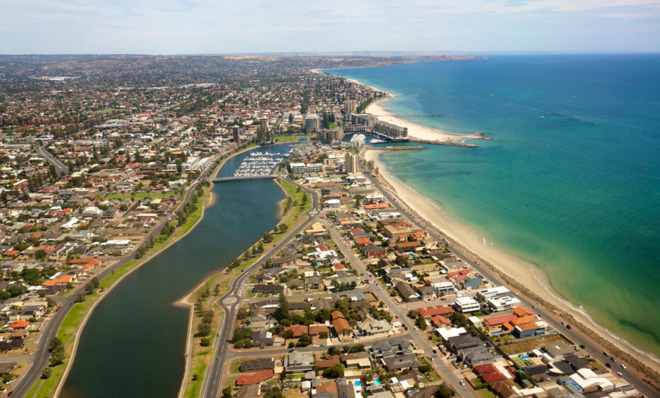These 6 cities are among the greenest in the world
In some places, the debate over sustainable living has long been decided in favor of it

A free daily email with the biggest news stories of the day – and the best features from TheWeek.com
You are now subscribed
Your newsletter sign-up was successful

Solar-powered buses. Carbon neutral buildings. Motion-sensitive lights and water faucets.
Sounds like something out of The Jetsons.
But cutting-edge technologies like these are already the norm in some of the world's greenest cities, where the environment takes precedence over industry and the debate over sustainable living has long been decided in favor of it.
The Week
Escape your echo chamber. Get the facts behind the news, plus analysis from multiple perspectives.

Sign up for The Week's Free Newsletters
From our morning news briefing to a weekly Good News Newsletter, get the best of The Week delivered directly to your inbox.
From our morning news briefing to a weekly Good News Newsletter, get the best of The Week delivered directly to your inbox.
We take a look at six cities that are among the most environmentally friendly based on their energy sources, transportation options, sustainable planning, and other factors:
Oslo, Norway
The Norwegian capital has always been one of the cleanest cities in the world, and has one of the lowest carbon emission levels among European cities (per capita).
Nearly 140 city buses will soon run on biofuel from household food waste, and municipal buildings have nearly phased out heating oil in favor of renewable energy.
A free daily email with the biggest news stories of the day – and the best features from TheWeek.com
The city hopes to phase out fossil fuels entirely by 2020.
Copenhagen, Denmark
Currently the title-holder for European Green Capital, Copenhagen saw nearly a third of its residents using bicycles to commute in 2010.
City officials hope to raise that number to 50 percent by 2015, and have set a goal for being carbon neutral by 2025.
Copenhagen boasts that North Harbour — already under construction — will be Northern Europe's largest new urban development area, and will include a "green laboratory" focused on eco-technologies.
Adelaide, Australia
This southern Australian city is home to Tindo, the world's first solar-powered bus.
Adelaide is also home to 29 parks and several green hotels, and offers more than 500 bikes that can be rented by anyone for free.
The city's convention center even employs 800,000 earthworms to turn any food waste into plant food.
How green is that?
Well, the Mercer survey, which ranks the most livable cities in the world each year, ranked Adelaide as the seventh-most eco-friendly city in the world in 2010. Adelaide took the top slot in Australia.
Abu Dhabi, United Arab Emirates
While one may not think "green" when it comes to Abu Dhabi, the desert city is home to what's touted as one of the world's most sustainable communities known as Masdar City.
Under construction next to the airport, the development project relies on solar energy and other renewable energy sources, and is home to the Middle East's first rapid charging station for electric vehicles.
Palmwood, a sustainable hardwood substitute, is used throughout the city.
Cape Town, South Africa
The World Wildlife Fund said it chose Cape Town as the Global Earth Hour Capital of 2014 for "its ambition and pioneering actions to combat climate change" by transitioning away from fossil fuels toward renewable energy.
In 2013, the city made solar water heaters available to residents in hopes of cutting residential electricity consumption, which currently stands at about 43 percent.
Vancouver, British Columbia
The mayor of this coastal Canadian city launched an aggressive initiative five years ago that aimed to make Vancouver the greenest city in the world by 2020.
Known as Greenest City 2020, the initiative has resulted in a new building code — among the most advanced in the world — that requires the use of green construction materials and low-flow water devices.
Water consumption overall has fallen by 20 percent in recent years, and the number of hazardous air quality reports has dropped by an impressive 41 percent as more people bike or walk to get around, according to the Vancouver Sun.
An innovative, 17-mile network of bike lanes is also under construction.
This article, by Sarah Wolfe, originally appeared at GlobalPost.
More from GlobalPost...
-
 The ‘ravenous’ demand for Cornish minerals
The ‘ravenous’ demand for Cornish mineralsUnder the Radar Growing need for critical minerals to power tech has intensified ‘appetite’ for lithium, which could be a ‘huge boon’ for local economy
-
 Why are election experts taking Trump’s midterm threats seriously?
Why are election experts taking Trump’s midterm threats seriously?IN THE SPOTLIGHT As the president muses about polling place deployments and a centralized electoral system aimed at one-party control, lawmakers are taking this administration at its word
-
 ‘Restaurateurs have become millionaires’
‘Restaurateurs have become millionaires’Instant Opinion Opinion, comment and editorials of the day